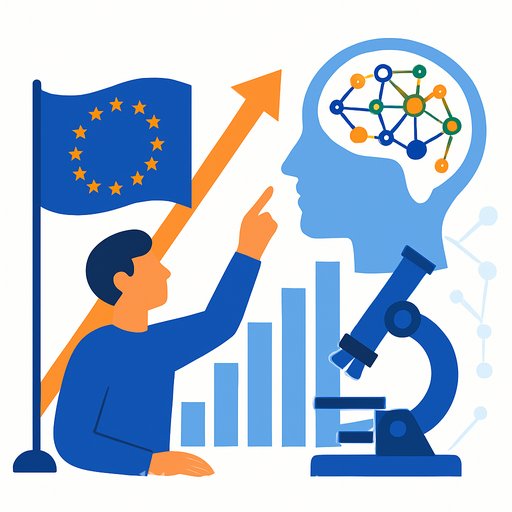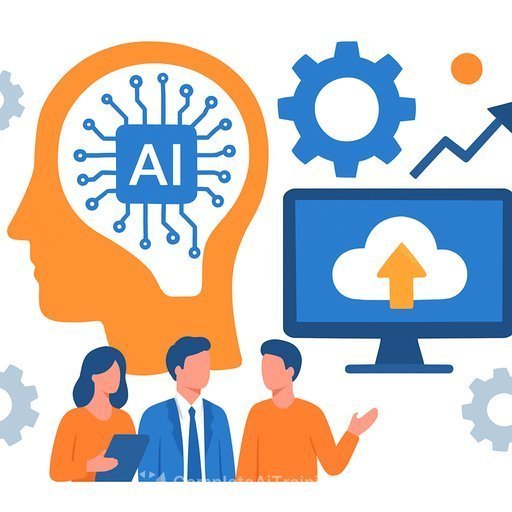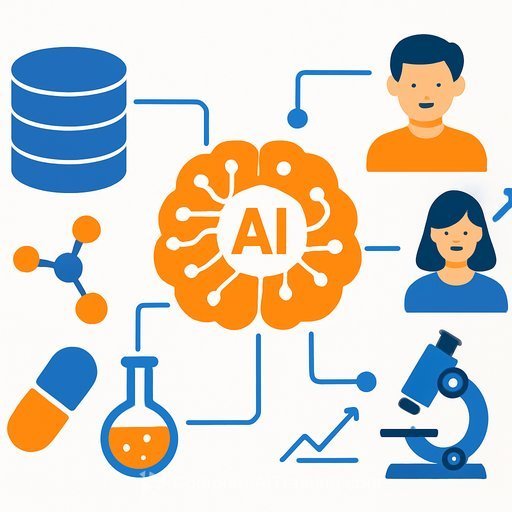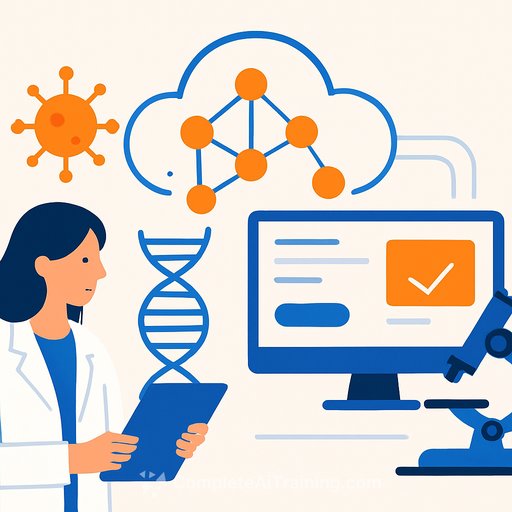Raise: Europe's push to put AI to work in science - funding, friction, and what labs should do now
Europe has officially launched the Resource for AI in Science in Europe (Raise) at the AI In Science Summit 2025 in Copenhagen. The goal: give researchers across disciplines access to large-scale AI, without building a new mega-institute. Think distributed infrastructure, linked datasets, and targeted funding through Horizon Europe.
Commission officials want Europe to lead in applying AI to research, even if it missed the first wave of building the largest models. The pitch is clear: help scientists generate hypotheses, automate lab work, and digest the literature - while staying realistic about limits and risks.
What's on the table
- €107M in Horizon Europe calls tied to Raise.
- Q1 2026: €30M for science-focused foundation models (materials, climate, more).
- 2025: €3M to set up a Raise secretariat.
- 2026-27 work programme (to be detailed next year):
- €28M for "networks of excellence" (materials, agriculture, environmental science)
- €30M for a doctoral network
- €32M for laboratory automation
- Hardware push: €600M redirected to EU "gigafactories" for AI chips.
Raise won't build a single new institute. It's meant to connect labs, compute, and data assets across Europe - and tighten coordination on scientific datasets.
Support - and skepticism - from the community
Many welcomed the intent. Others questioned scale, clarity, and timelines. Several speakers argued the budget is too small for the ambition and called the plan a "process rather than a structure."
The biggest friction points:
- Scale: Investments seen as an order of magnitude below what's needed to compete globally.
- Speed: Most Raise calls land in the 2026-27 programme; many grants may not start until 2028-29.
- Flexibility: Horizon Europe projects are often locked in; adapting mid-project to new AI advances has been hard. The Commission says it wants to fix this.
Longer-term signal: "next-generation AI"
The next Framework Programme (from 2028) is set to expand Raise and introduce a "moonshot" on next-generation AI - moving beyond today's large language models to physics- or science-based approaches. The message: don't chase; aim to lead the next paradigm.
What this means for research leaders
- Map fit to calls: If you're in materials, climate, agri, or environmental science - or running automation-ready labs - start shaping consortia now. Prep to move fast when topics publish.
- Plan for compute and data: Identify which national or EU compute you can tap, and what datasets you can contribute or need access to. Data governance will matter as much as GPUs.
- Pilot automation: Use 2025-2026 to validate AI-driven lab workflows so you're credible for the 2026-27 calls.
- Upskill teams: Train PIs, postdocs, and RSEs on model evaluation, experiment design with AI, and data stewardship. Practical courses can close the gap faster than hiring alone. See role-based AI training options.
- Push for flexibility: In proposals and consortia agreements, build in review points and pivot paths as the science moves.
Risk and trust: keep the guardrails
Officials emphasized both opportunity and caution. AI can assist with detection tasks (e.g., cancer imaging), but hallucinations and fabricated outputs can erode trust if not managed. Keep human oversight, validation datasets, pre-registration where appropriate, and transparent reporting in your workflow.
Researchers' actual usage
A global survey by Elsevier (Nov 4) found 58% of researchers have used AI tools for work, up from 37% last year. Most use them for search and summarization, but a slight majority still won't use them to generate hypotheses or design experiments. 39% called AI "unreliable," versus 22% "trustworthy."
Timeline to watch
- 2025: Secretariat funded and standing up.
- 2026 (Q1): Foundation model call opens.
- 2026-27: Main Raise calls published; many projects likely starting 2028-29.
- 2028+: Next Framework Programme with expanded Raise and a "next-generation AI" moonshot.
Useful links
Bottom line: Raise is real, the intent is serious, and the funding is focused - but the clock is slow. If you lead a lab or research unit, build partnerships, prep your data and compute plan, and line up pilots now so you're ready the moment the calls drop.
Your membership also unlocks:






